Fitness isn’t just about breaking a sweat or hitting the gym; it’s a lifestyle, a journey toward optimal health and well-being. Whether you’re a beginner or a fitness enthusiast, diving into the world of fitness opens doors to immense physical, mental, and emotional benefits.

The Importance Of Fitness
Physical fitness plays a very important role in our daily life. Engaging in regular physical activity not only helps in keeping the body in good shape but also offers numerous other benefits. Here are some of the main reasons why fitness is important:
- Physical Health: Regular exercise and fitness activities contribute to improved cardiovascular health, increased muscle strength, enhanced flexibility, and better endurance. It reduces the risk of chronic diseases like heart disease, diabetes, obesity, and hypertension.
- Mental Well-being: Physical activity is linked to mental health benefits such as reduced stress, anxiety, and depression. Exercise triggers the release of endorphins, which are natural mood lifters, leading to improved overall mental well-being.
- Weight Management: Incorporating fitness into one’s lifestyle helps in weight management and weight loss by burning calories and boosting metabolism. It promotes a healthy body composition, reducing the risk of obesity-related issues.
- Improved Sleep Quality: Exercise contributes to better sleep patterns and quality. It helps regulate sleep cycles, enabling individuals to achieve restorative and restful sleep, leading to increased productivity and better mood.
- Boosted Immune System: Engaging in fitness activities strengthens the immune system, reducing the risk of illness and improving the body’s ability to fight off infections and diseases.
- Increased Longevity: Research suggests that a physically active lifestyle is associated with a longer lifespan. Regular exercise and fitness habits contribute significantly to overall longevity and a higher quality of life in older age.
- Social Benefits: Participating in fitness-related activities often involves social interaction, fostering friendships, camaraderie, and a sense of community. This social aspect contributes positively to mental health and motivation to stay active.
- Enhanced Confidence and Self-esteem: Achieving fitness goals leads to a sense of accomplishment, enhancing confidence and self-esteem. Feeling good physically often translates to feeling better mentally and emotionally.
How to Get Started
The best way to get started on your fitness journey is to find an activity that you enjoy. If you’re not sure where to start, here are a few suggestion:
Running: Running is another great way to get your heart rate up. It’s a good choice if you’re looking for a more challenging workout.

Walking: Let your path to wellness be paved with gentle steps. Walking, a whisper to your body, awakens its strength and resilience, one breath at a time.

Cycling: Pedal your way to a stronger you! Cycling’s rhythmic challenge builds endurance, one revolution at a time, leaving you ready to conquer any hill (or grocery list).

Swimming: Swimming is a great way to cool off on a hot day and get a full-body workout at the same time. It’s also a low-impact activity, so it’s easy on your joints.

Dancing: Dancing is a fun way to get exercise and express yourself. There are many different types of dance, so you’re sure to find one that you enjoy.
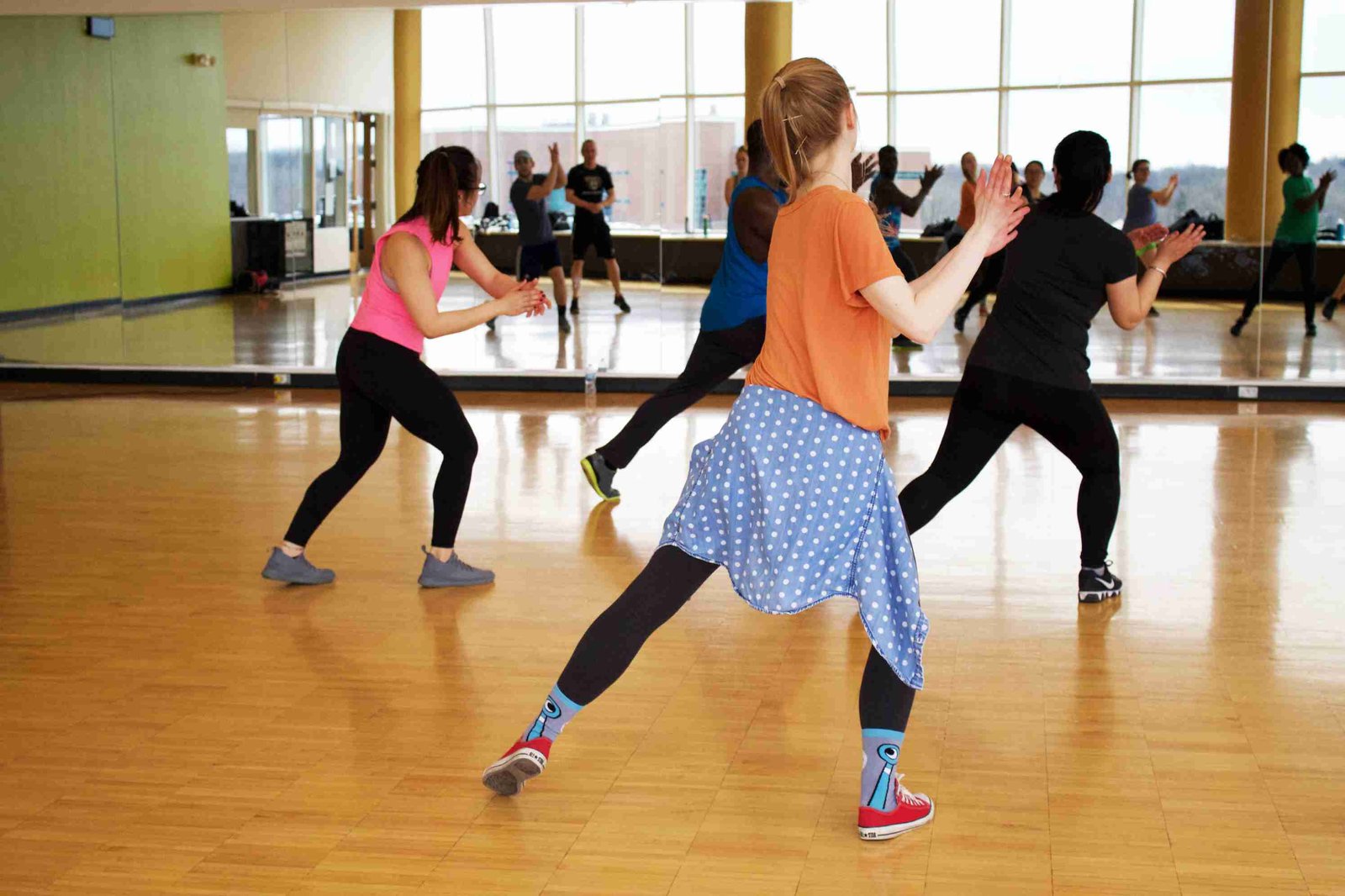
Crafting A Balanced Workout Routine
A balanced workout routine involves a few key elements to ensure overall fitness and well-being. Here’s your guide to composing your own fitness masterpiece:
Step 1: Assess Your Goals and Abilities
Define Your Goals: Determine whether you aim for weight loss, muscle gain, improved flexibility, or overall fitness.
Consider Your Abilities: Assess your current fitness level and any limitations you might have.
Step 2: Design Your Routine
Cardiovascular Exercise: Incorporate exercises such as running, cycling, swimming, or brisk walking into your routine, aiming for a minimum of 150 minutes per week.
Strength Training: Incorporate exercises targeting major muscle groups using weights, resistance bands, or bodyweight exercises at least 2-3 times a week.
Flexibility and Mobility: Integrate stretching or yoga sessions to improve flexibility and prevent injury. Aim for 2-3 sessions per week.
Rest and Recovery: Allow at least one or two days of rest per week to allow your body to recover and prevent burnout.
Step 3: Create a Weekly Schedule
Distribute Workouts: Spread different types of workouts across the week to avoid overexertion or muscle fatigue.
Mix Intensity: Alternate between high-intensity workouts and lighter activities to prevent monotony and allow for recovery periods.
Consider Time: Allocate time according to your schedule, ensuring you have enough time for each type of exercise.
Step 4: Stay Flexible and Listen to Your Body
Adapt as Needed: Modify your routine based on how your body responds and as your fitness level improves.
Pay Attention to Signals: Take note of any pain, discomfort, or exhaustion. It’s crucial to differentiate between regular muscle soreness and potential injury.
Step 5: Track Your Progress
Keep a Journal: Record your workouts, including the type, duration, and intensity, to track improvements and stay motivated.
Measure Your Goals: Regularly assess your progress towards your fitness goals and adjust your routine accordingly.
Step 6: Seek Professional Guidance if Needed
Consult Professionals: Consider seeking advice from fitness trainers, physical therapists, or healthcare providers for personalized guidance, especially if you have specific health concerns or goals.
The Role of Nutrition in Fitness

- Macronutrients: Carbohydrates, proteins, and fats are the primary macronutrients. Carbs provide energy, proteins aid in muscle repair and growth, and fats support hormone production and overall health. Balancing these nutrients based on your goals is crucial.
- Hydration: Maintaining proper hydration is crucial for optimal performance and recovery. Water plays a vital role in regulating body temperature, transporting nutrients, and eliminating waste from the body. Aim for at least 8-10 cups (64-80 ounces) of water per day, adjusting based on activity level and climate.
- Nutrient Timing: While overall daily intake matters, the timing of meals can impact performance. Eating a balanced meal a few hours before exercise provides sustained energy, while consuming protein and carbs post-workout helps with recovery.
- Pre- and Post-Workout Nutrition: Eating before exercise provides fuel, while post-workout meals aid in recovery. Opt for a mix of carbs and proteins before workouts and prioritize protein-rich meals afterward to support muscle repair.
Mental Health and Fitness
True fitness encompasses mental well-being. Stress, anxiety, and mental fatigue can impede progress. Our guide delves into mindfulness, stress reduction techniques, and the impact of mental health on physical performance.
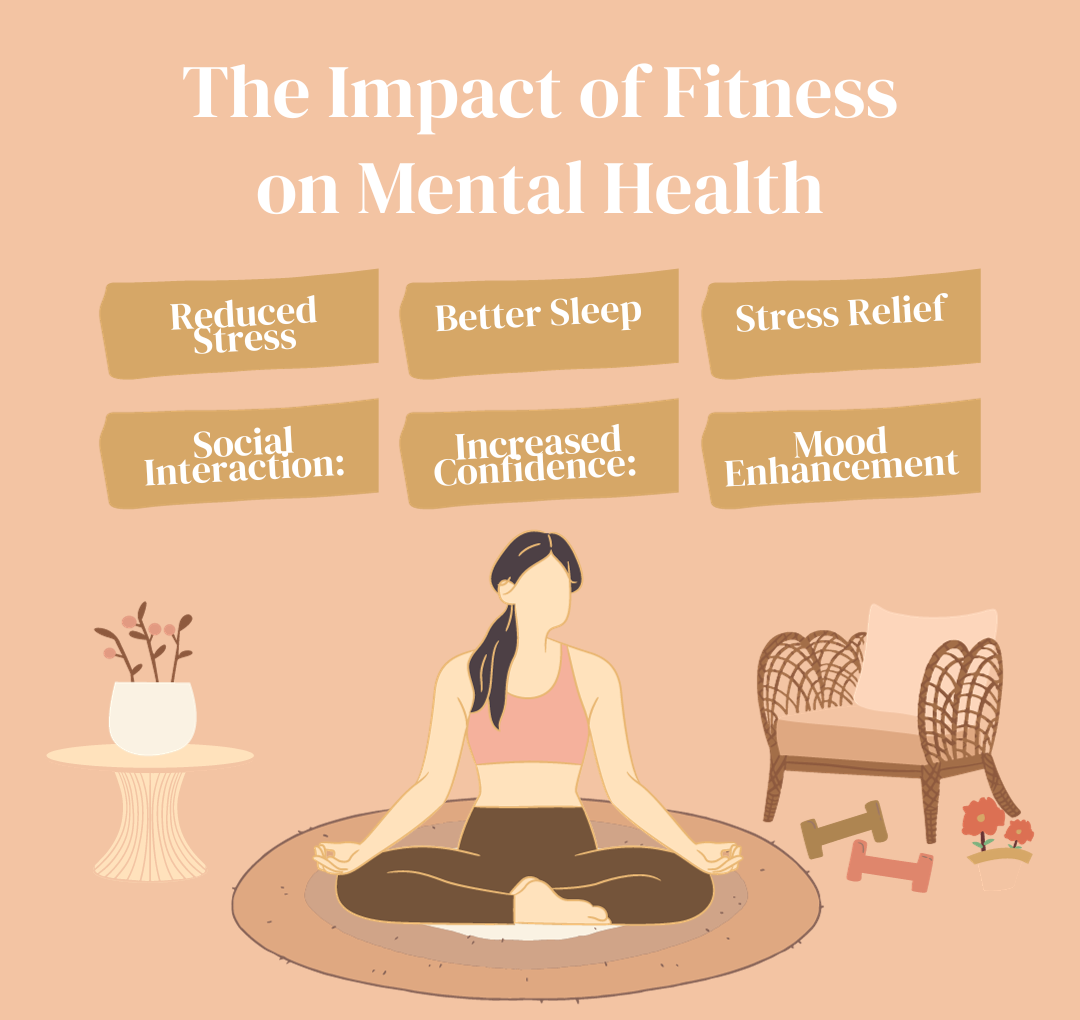
- Reduced Stress: Exercise can help alleviate stress by reducing the body’s stress hormones like cortisol and releasing endorphins, which act as natural mood lifters.
- Better Sleep: Regular exercise can improve sleep quality, helping you fall asleep faster and enjoy deeper, more restorative sleep. Better sleep contributes to better mental health.
- Stress Relief: Engaging in physical activity serves as a healthy outlet to release pent-up energy and tension, promoting a sense of calmness and relaxation.
- Social Interaction: Participating in group fitness classes, team sports, or workout groups can provide social support and connections, which are vital for mental well-being.
- Increased Confidence: Achieving fitness goals can enhance self-esteem and confidence, leading to a more positive self-image and outlook on life.
The Role of Rest and Recovery
Rest is as crucial as exercise. Adequate sleep and proper recovery periods allow your body to heal, rebuild, and rejuvenate. It’s not just about pushing hard; it’s about allowing your body the time it needs to thrive.
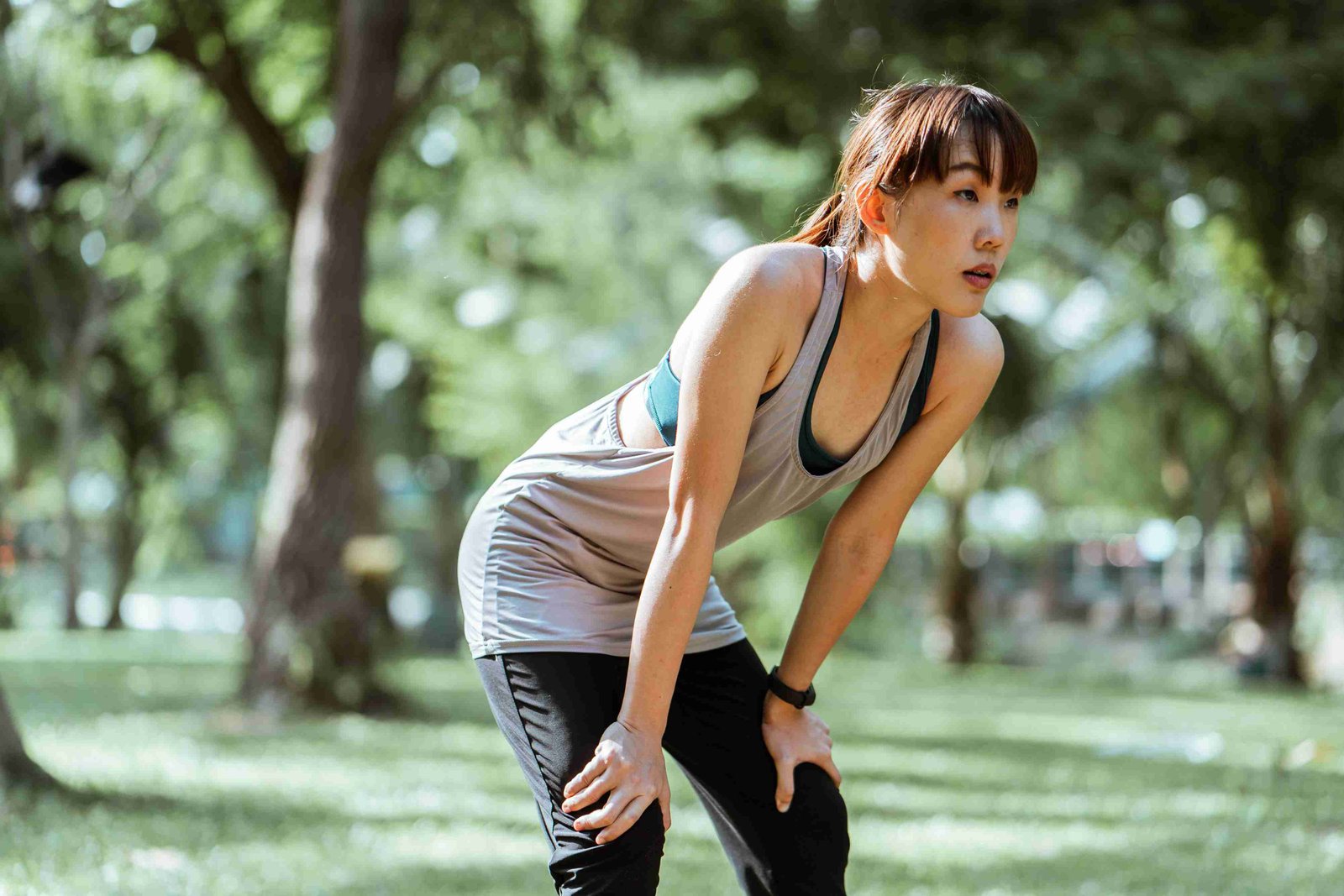
- Muscle Repair and Growth: When you exercise, especially with strength training, you create microscopic tears in your muscles. Rest allows these muscles to repair and grow stronger, leading to improved strength and endurance.
- Injury Prevention: Continuous stress on muscles and joints without proper rest can lead to overuse injuries. Adequate rest helps prevent these injuries by giving your body time to recover and rebuild.
- Mental Rejuvenation: Rest not only benefits the body but also the mind. It helps reduce mental fatigue and burnout, allowing you to approach workouts with renewed focus and motivation.
- Sleep Quality: Quality sleep is an integral part of rest and recovery. It’s during sleep that the body repairs tissues, consolidates memories, and regulates hormones crucial for overall health and fitness.
Conclusion
Fitness isn’t a destination but a continuous journey. It’s about making choices that prioritize your well-being. Remember, small consistent steps lead to significant transformations. Embrace fitness not as an obligation but as a gift to yourself, unlocking your true potential. Are you prepared to embark on the journey toward a fitter, healthier version of yourself?
FAQs
How can I get started on my fitness journey if I’m a beginner?
Start by finding an activity you enjoy, such as running, walking, cycling, swimming, or dancing. Choose something that suits your preferences and fitness level.
What elements should be included in a balanced workout routine?
A balanced workout routine involves cardiovascular exercise (e.g., running, cycling), strength training, flexibility/mobility work, and adequate rest and recovery. Tailor it based on your goals and abilities.
What is the role of nutrition in fitness, and how can I balance macronutrients?
Balancing macronutrients (carbs, proteins, fats) is crucial for energy, muscle repair, and overall health. Adjust your intake based on your fitness goals, and prioritize hydration with at least 8-10 cups of water daily.
What are the main benefits of engaging in regular physical activity and fitness?
Regular physical activity offers improved cardiovascular health, increased muscle strength, enhanced flexibility, better endurance, reduced risk of chronic diseases, and mental well-being benefits such as stress reduction and anxiety relief.
How does mental health relate to fitness, and how can exercise contribute to stress relief?
Mental well-being is integral to fitness. Exercise reduces stress hormones, improves sleep quality, serves as a healthy outlet for tension, provides social interaction, and enhances confidence, contributing to overall mental health.

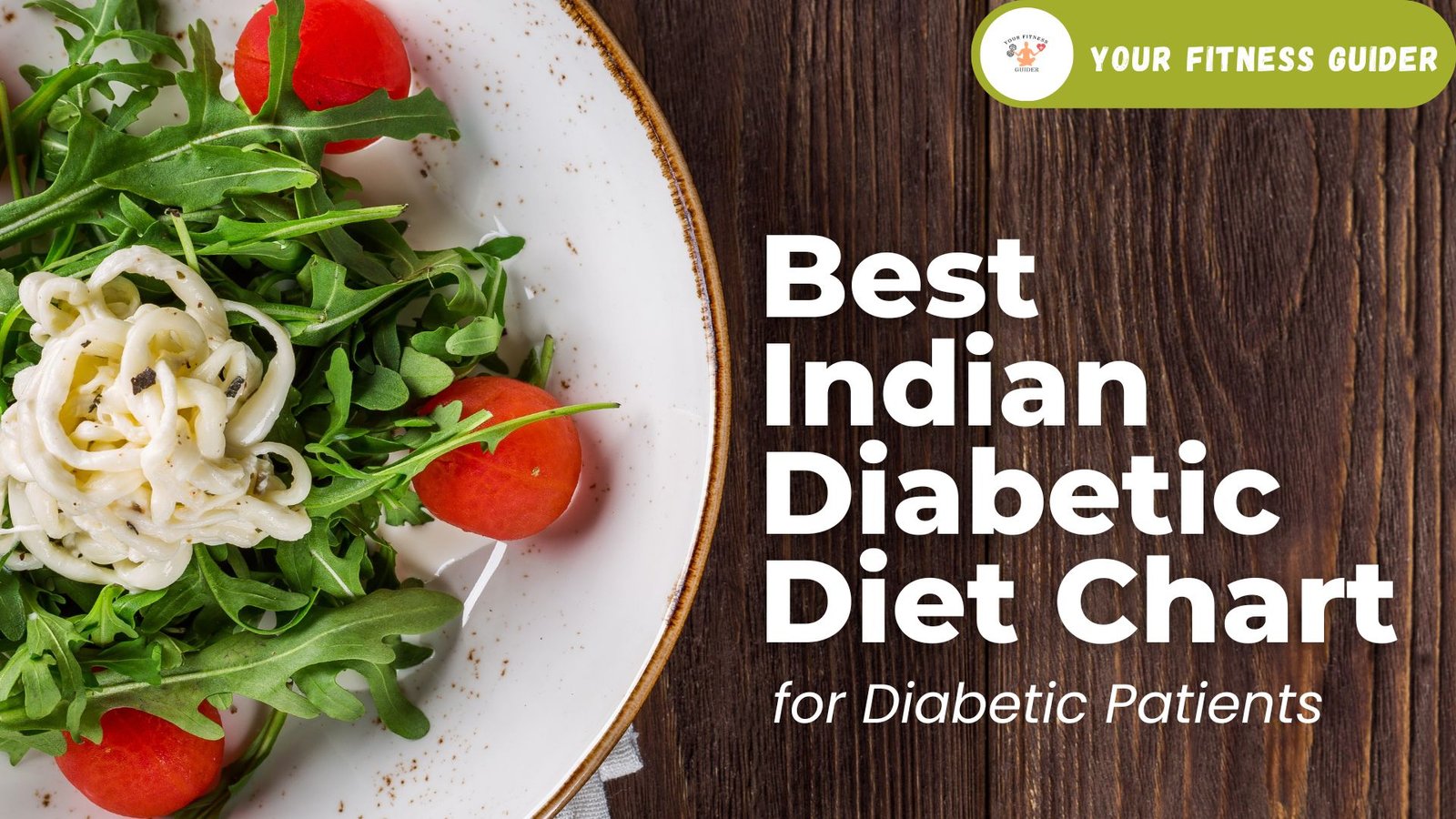
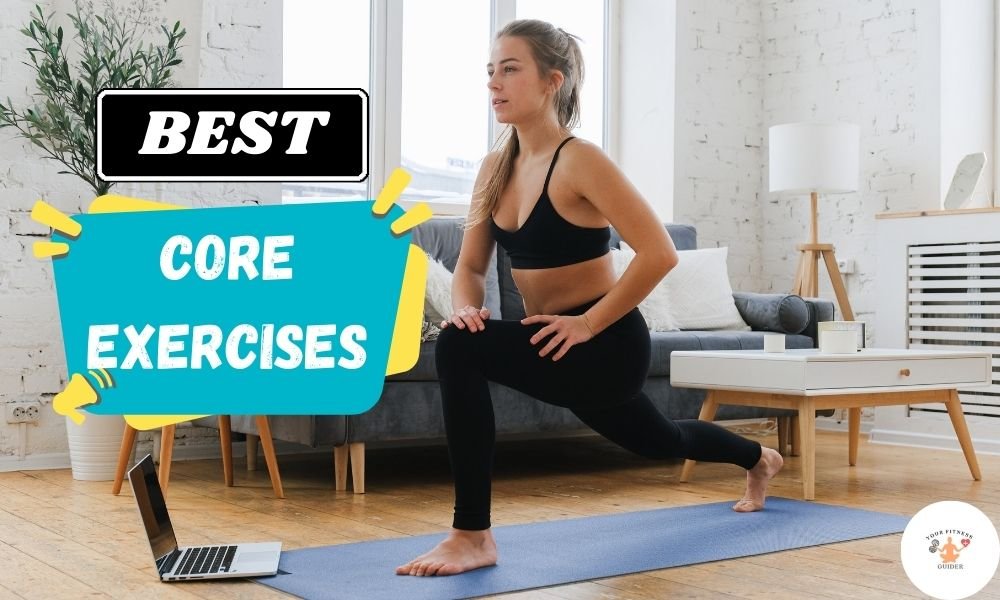
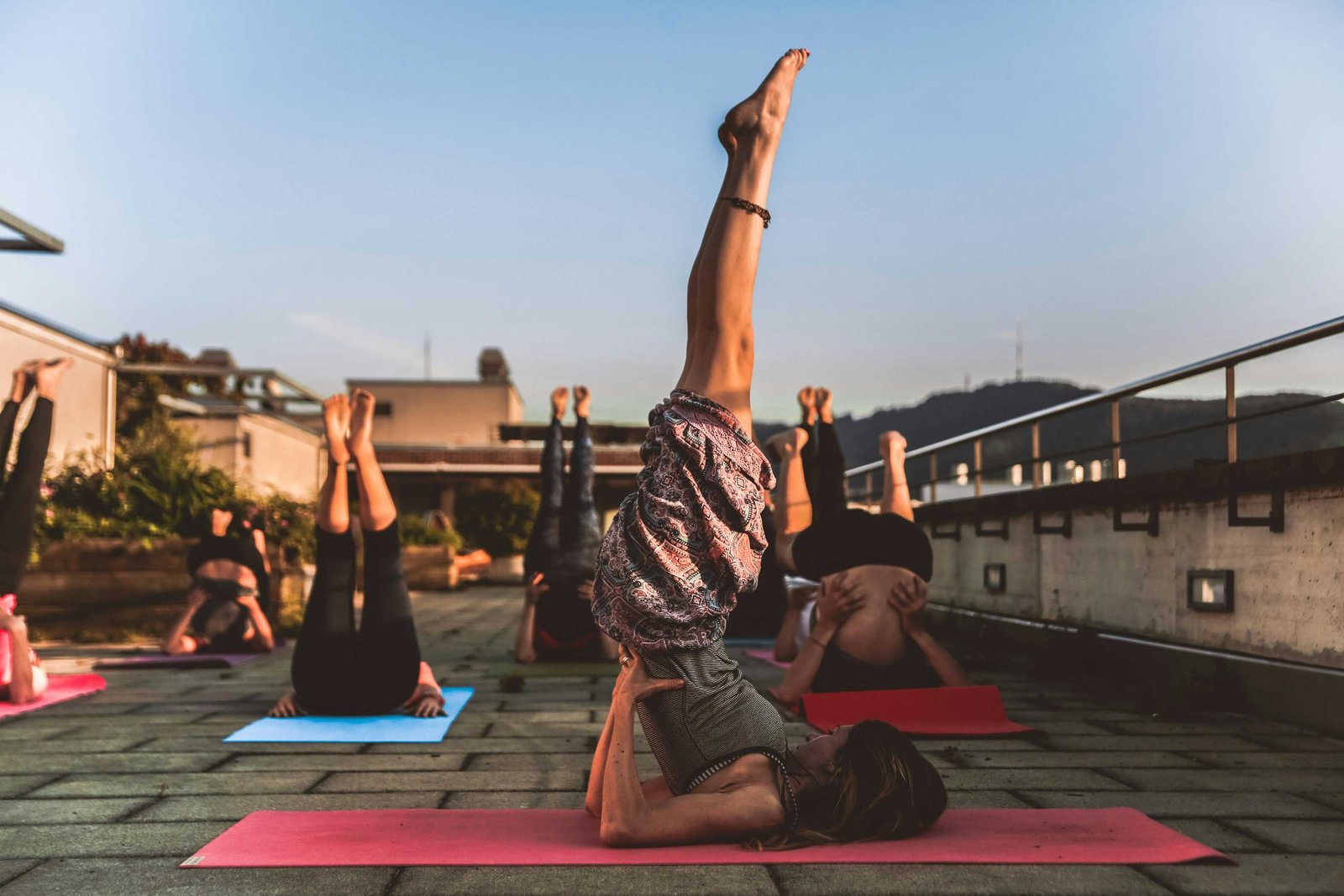
[…] game with these tips and unlock the full potential of the reverse grip triceps pushdown in your fitness […]
[…] strength is vital for overall well-being and fitness. The core, consisting of muscles in the abdomen, lower back, pelvis, and hips, provides stability […]